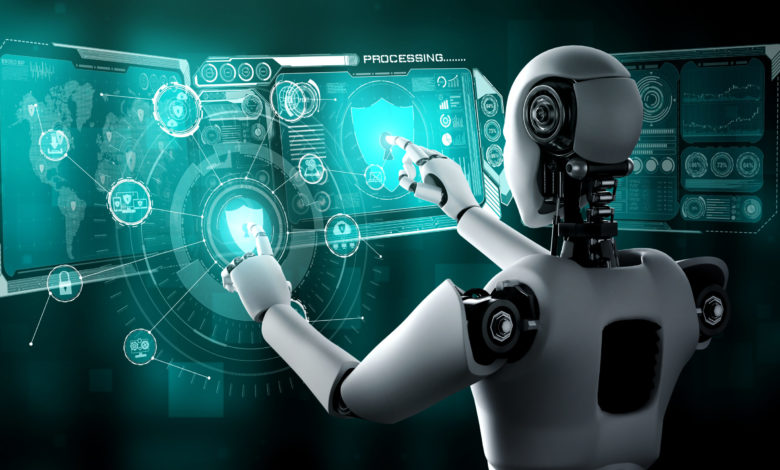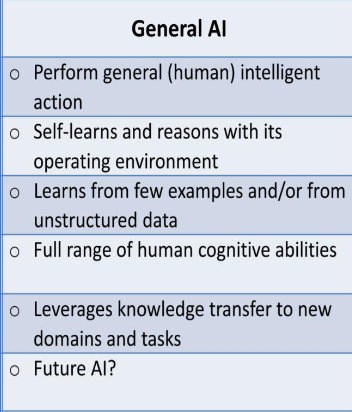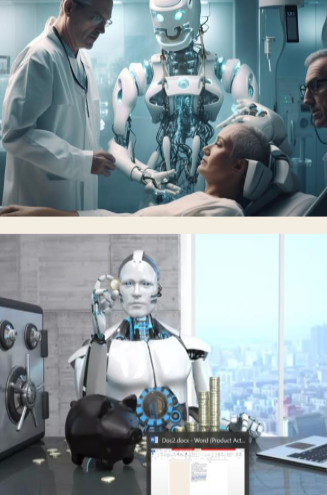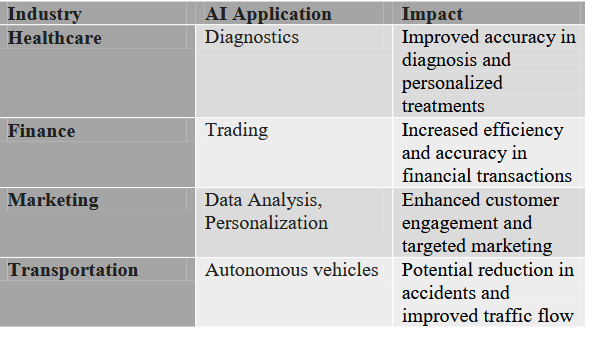Artificial Intelligence “Technology is an useful servant but a dangerous master!”
Jathunavi Sanjeepan

In this article
Introduction
II. Understanding AI
III. How AI is Changing
Industries
“Technology is an useful servant but a dangerous master!”
What is ‘Artificial intelligence’? is one of the most popular questions asked by everyone. Artificial intelligence is
the science of making machines that can think like humans. It can do things that are considered “smart.”
AI technology can process large amounts of data in ways, unlike humans. The goal for AI is to be able to do things such as recognize patterns, make decisions, and judge like humans.
AI is no longer a futuristic concept; it’s a reality reshaping industries and redefining how we live and work. The rapid advancement of AI technologies has led to breakthroughs in various fields, sparking both excitement and concerns about its impact on society.
AI encompasses a range of technologies that simulate human intelligence, enabling machines to learn from data, adapt to new inputs, and perform tasks that typically require human intelligence. These include learning (acquiring information and rules for using it), reasoning (using rules to reach approximate or definite Conclusions), and self- correction. Examples of AI applications include expert systems, natural language
processing (NLP), speech recognition and machine vision.
AI can be categorized into two types:
Narrow AI, which is designed for a specific task, such as facial recognition.
General AI, which can perform any intellectual task that a human can do.

Narrow AI, sometimes called ´Weak AI´, encompasses artificial intelligence systems purpose-built for specific, well-defined tasks or applications. These AI systems excel at executing precise functions within a limited scope, and their capabilities remain restricted when compared to human intelligence.
 Unlike general AI, narrow AI lacks self-awareness, consciousness, emotions, and genuine intelligence that can
Unlike general AI, narrow AI lacks self-awareness, consciousness, emotions, and genuine intelligence that can
match human intelligence. While such systems may appear sophisticated and intelligent, they operate under a predetermined and predefined set of parameters, constraints, and contexts. Narrow AI finds its application in many domains, for example: Voice assistants. Siri, Alexa, and Google Assistant are examples of Narrow AI designed to understand and respond to voice commands, perform tasks like setting alarms, making phone calls, and answering questions. Recommendation systems. Let’s consider Siri. It is not a conscious machine. Instead, it is only a tool performing tasks.
When we converse with Siri, it processes the human language, enters it into the system’s search engine like Google, and provides results.
How the AI technology affects in various industries?
 Healthcare
Healthcare
As of today, AI is primarily utilized to increase speed and accuracy in the healthcare kingdom. Some of the current uses of AI in this field include: Diagnosing Patients: AI algorithms analyze medical imaging data, such as X-rays, MRIs, and CT scans, to assist healthcare professionals in accurate and swift diagnoses. Examples of AI-based Medical Device: Artificial Intelligence is not a new concept in medical field. It was introduced in 1970.
This particular application technology was first used to help with biomedical problems. For now about 86% of AI technology was applied in the medical realm.
Finance
It is predicted that in the banking, financial services and insurance sectors (BFSI), generative AI has the potential to increase labour productivity. Artificial intelligence is being used for investment in stocks in a
number of ways, including algorithmic trading, chatbot interfaces, and sentiment analysis to help investors analyze data and ensure that their portfolios are diversified.
Marketing
AI helps marketers understand the predicted outcome of their campaigns and marketing assets and forecast outcomes.
Eg:- Netflix uses AI personalization for movie recommendations.
Wowcher uses AI personalization to create social media posts and ads.
Sephora implements AI chatbot technology to turn overwhelming choices into a curated beauty
experience.
Transportation
AI in transportation can find gaps in safety and prevent more incidents on the road, within a warehouse, and in other locations.
For example, in autonomous vehicles, AI is used to detect and react to hazards faster than a driver. Future transportation technology will be electrified, carbon-neutral, autonomous and smart. Over the next decade,
commuter trends and innovations will center efficiency.

As the sum up, In my opinion, AI technology plays an important role in this electronic world. With the help of AI
technology, we can successfully do every minor work and it may help us to improve our knowledge in the
technology field.

